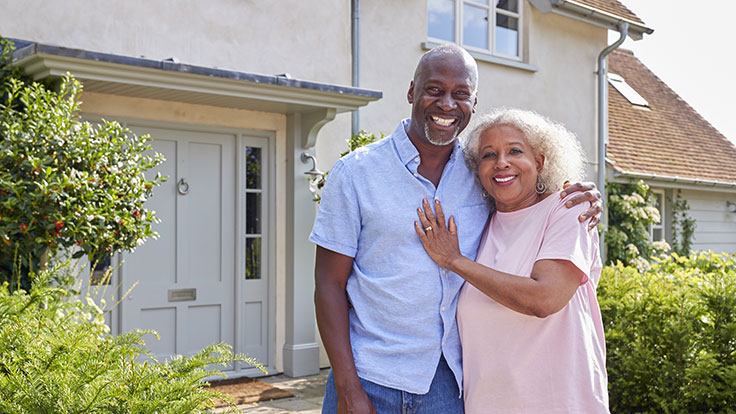What is a home reversion plan?
Simon Stanney
Last reviewed 24th October 2024 by Scott Robertson
4 min read
A home reversion plan lets you sell all or part of your home in return for cash in retirement, and stay living there until you die or go into care. But how does it work? How is it different from other equity release schemes? And is it right for you?
How does a home reversion plan work?
- If you're over 65 and own your house, home reversion lets you unlock tax-free cash for a more comfortable retirement by selling a share of your home.
- As well as cash (either as a lump sum or income) you'll get a 'lifetime lease' – a promise that you can stay in your home until you die or move into care.
- When you die or move into care, your family or estate gets your share of the proceeds from the sale of your home.

How much cash could you unlock?
It really depends on your circumstances. But as a rule of thumb, if you're 65, it could be as little as 25% of your home's market value, rising to around 60% if you're 90.
You could sell up to 100% of your home but, because reversion providers only pay a discounted rate, you wouldn't get 100% of the current market value for it.
Related articles
Use our 60 second equity release calculator
Release tax-free cash from your home
Home reversion plan or lifetime mortgage?
Once you've established whether equity release is right for you, your choice between different equity release schemes typically comes down to either a home reversion plan or a lifetime mortgage.
While a lifetime mortgage means taking a loan against the equity in your home, a home reversion scheme involves selling all or part of your home to a reversion provider.
They both give you tax-free cash to spend in retirement, and in both cases you get to stay in your home until you die or go into permanent care. But the big difference is that with a home reversion plan you no longer own all of your home. With a lifetime mortgage, your home remains yours.
Do I have to pay interest on a home reversion scheme?
You do not have to pay interest on the money you receive from a home reversion scheme. This is because you sell all, or part of, your home for a tax-free lump sum or monthly income. This is different to a lifetime mortgage, which is a loan that will accrue compound interest.
Is a home reversion plan right for you?
Once you've understood the difference between the types of equity release plans, it's time to look more closely into the plan that could be right for you. When considering a home reversion plan, think carefully about the advantages and disadvantages.
Advantages of home reversion
- Guarantee an inheritance – You'll know exactly what proportion of your home's value will be left to your family
- Get a tax-free lump sum – The cash you unlock is yours to spend any way you like
- No monthly repayments to make – And no interest to pay either
- Move home – Home reversion plans can be portable, meaning you could move home and take your plan with you to another eligible property, depending on your provider.
- Benefit from house price rises on the percentage you still own (if any)
- Protect against falling prices – Because you've already sold part or all of your home, if house prices fall it won't impact you or your estate on the proportion sold, unlike a lifetime mortgage where you still own your home (but build up interest over-time)
- Inheritance tax planning – Home reversion could remove your home from your estate in terms of inheritance tax (there may be IHT payable)
Disadvantages of home reversion
- Reversing it is expensive – If you decide to buy back the share you sold, you'll pay the current full market value, not the discounted rate you sold it for
- Your family could lose out – If you die or move permanently into care soon after taking out a home reversion plan, you will have sold all or part of your home for less than it was worth. This means the value of your estate will be significantly less than if you still had sole ownership and your family could sell your home and get its full value
- You won't benefit from future house price rises on the part of your home you sold
- If you sell 100% of your property, there'll be no property value to leave to loved ones, and you lose the option of unlocking more cash later
- You no longer own 100% of your home
- You have to be at least 65 – whereas you can get a lifetime mortgage from 55
Don't worry, it's regulated
You may have been wary of equity release schemes in the past, but equity release is now regulated and supervised by the Financial Conduct Authority (FCA). Many reputable equity release products will also meet the high standards of the Equity Release Council(www.equityreleasecouncil.com opens in a new tab) (ERC) – an industry body which promotes conduct and practices with a focus on consumer safeguards.
The thoughts and opinions expressed in the page are those of the authors, intended to be informative, and do not necessarily reflect the official policy or position of SunLife. See our Terms of Use for more info.
